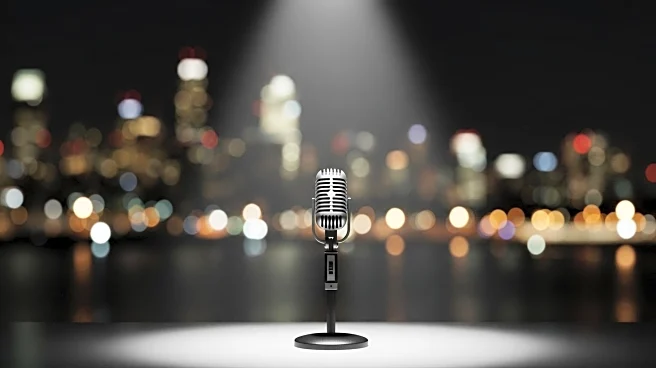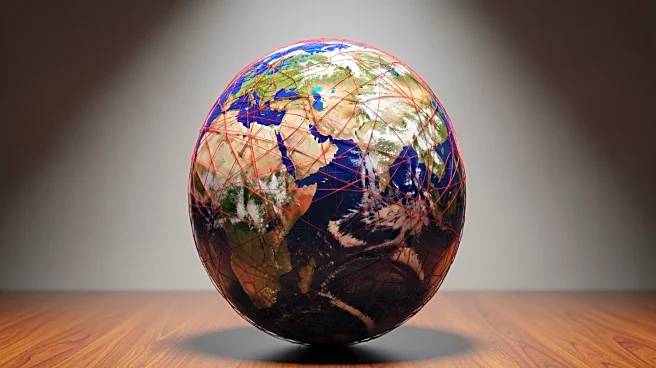What's Happening?
A comment made by a late-night host on September 24, 2025, has ignited a significant media controversy. The host's remark, perceived by some as an assertion rather than a joke, coincided with a high-profile violent crime and an ongoing national debate about media and politics. Within 48 hours, the network faced threats of preemption from affiliates, a public call for discipline from a regulator, and a public letter signed by 400 performers and writers defending editorial freedom. The network initially suspended the show but reinstated it two days later, highlighting the tension between media accountability and free speech.
Why It's Important?
This incident underscores the delicate balance between free speech and media accountability in the U.S. The swift reactions from affiliates, regulators, and the public illustrate the heightened sensitivity surrounding media content, especially in politically charged contexts. The situation raises questions about the extent of political influence on media decisions and the potential for censorship. The outcome of this controversy could set a precedent for how networks handle similar situations in the future, impacting the creative freedom of content creators and the editorial policies of media companies.
What's Next?
As networks navigate this controversy, they may implement tighter editorial reviews to avoid similar incidents. However, creators and performers might push back against perceived censorship, advocating for greater creative freedom. The incident could lead to broader discussions about the role of political pressure in media regulation and the boundaries of acceptable content in broadcast media. Stakeholders, including political leaders, media companies, and civil society groups, may engage in debates about the implications for free speech and media independence.
Beyond the Headlines
The controversy highlights the ongoing cultural and ethical debates about the role of media in shaping public discourse. It raises questions about the responsibilities of media figures in addressing sensitive topics and the potential consequences of their statements. The incident may also influence public perceptions of media credibility and trust, as audiences grapple with the complexities of satire, accountability, and free expression.








